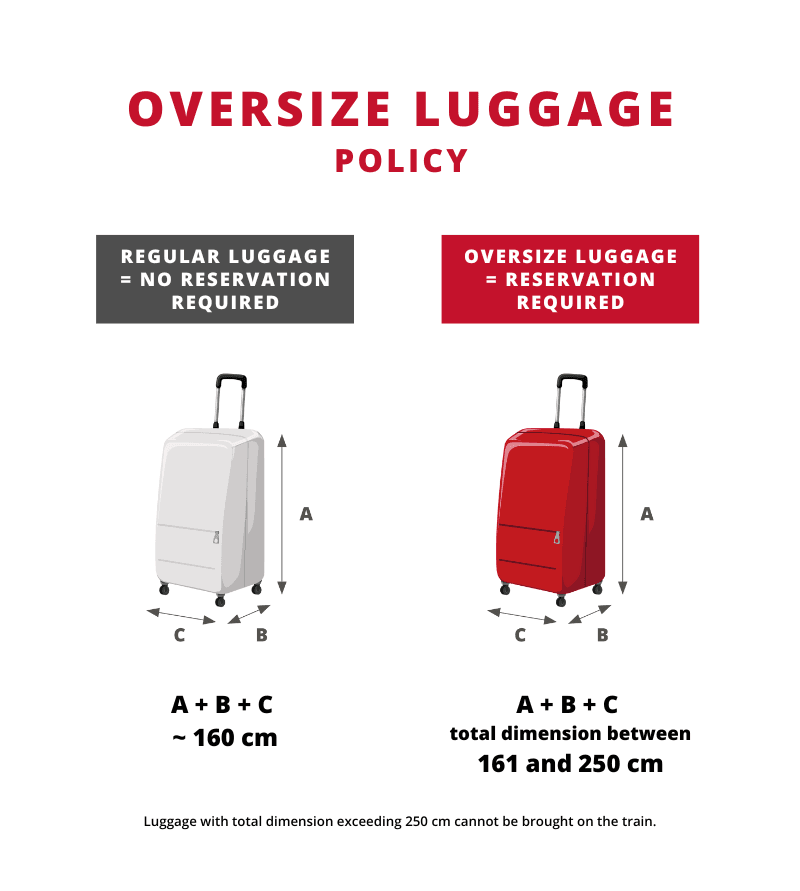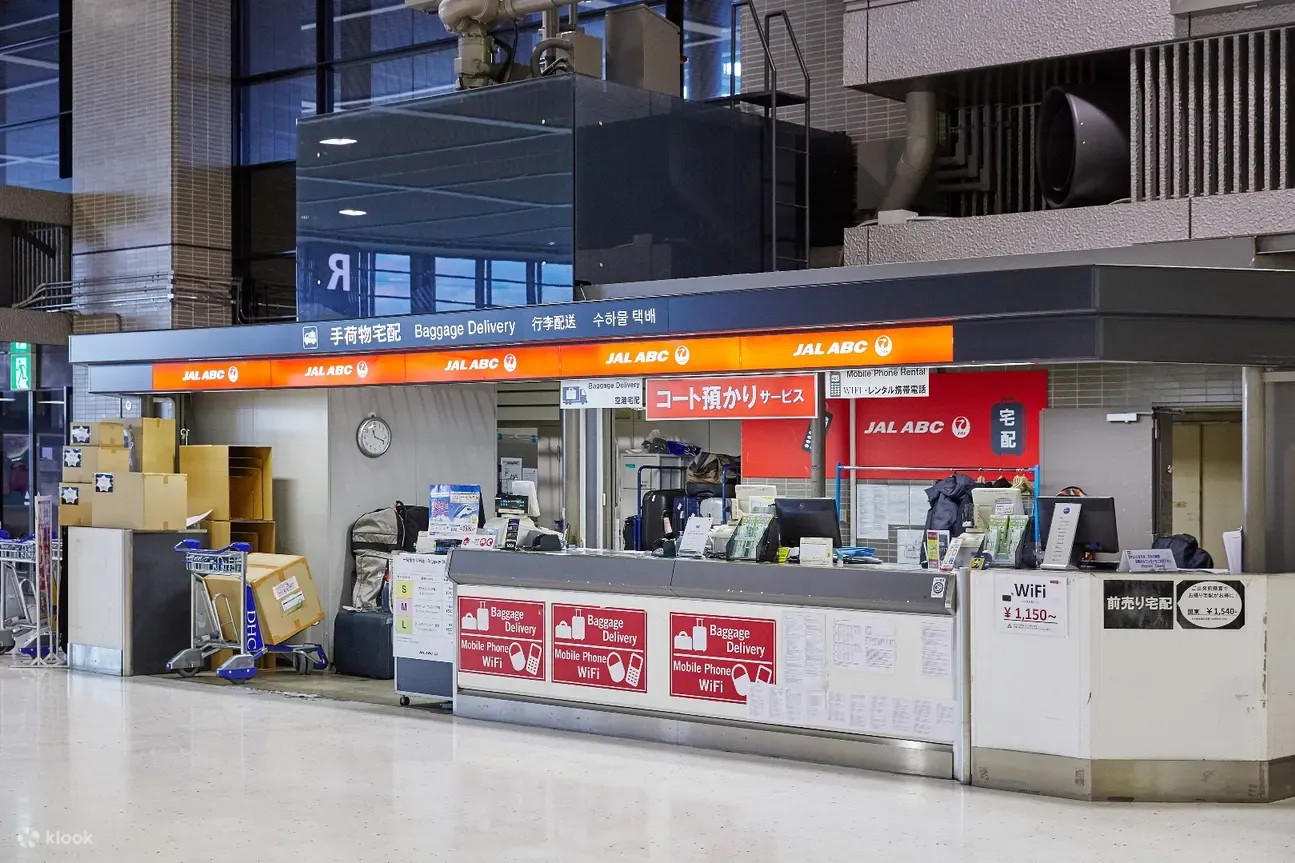Traveling with a luggage in Japan: What you need to know
Restrictions and etiquette when traveling with a luggage
Ever had the experience of dragging your luggage around on uneven roads, navigating through the mass of people while pulling your luggage, or having to get onto an already overcrowded train or bus with your large luggage? Moving around with your luggage is probably one of the most painful things of traveling. But, you are not the only one who is annoyed with it — locals rushing to get to places are probably equally annoyed having to deal with someone carrying their luggage around.

In recent years, Japan has been actively promoting 'hands-free' travel, an initiative that encourages tourists to travel around without their luggages. This initiative benefits not only the locals who are trying to get along with their daily lives, but it also greatly benefits tourists, allowing you to travel and explore Japan hassle-free!
Traveling with a luggage in Japan? Let's take a look at what are some of the restrictions you should be aware of, and what services are available for you.
What are some of the existing luggage restrictions in Japan?
The most important restriction that you should be aware of are the luggage restrictions on the Shinkansen as well as other public transport options.
Shinkansen Luggage Restrictions
In 2020, JR introduced a policy where travelers with luggages of overall dimensions between 161-250cm had to reserve certain seats on some Shinkansen routes; and luggages above 250cm in size were not allowed on the trains. Dimensions are measured by adding up the height, width, and length of your luggage.

The Shinkansen routes covered by the policy are the Tōkaidō Shinkansen (Tokyo to Osaka), San’yō Shinkansen (Osaka to Fukuoka), and the Kyūshū Shinkansen (Fukuoka to Kagoshima).
While these routes are major routes, the size restrictions primarily targets oversized luggages and are unlikely to cause issues for most travelers.
Also good to note is that you are only allowed to bring 2 pieces of luggages onto the Shinkansen, and they should not exceed 30kg each.
Luggage Restrictions on Public Transport in Japan
There is no policy surrounding luggage restrictions on public transport in Japan, but there are a few unspoken rules to be aware of.
- When riding on the escalator, take only one side of the escalator and put your luggage on the step right in front of you or behind you. Make sure to keep one side of the escalator empty, and watch over your luggage to ensure it doesn't fall off the escalator.
- When taking the local metro and trains, try to avoid the rush hour. But if you can't, head to the two ends of the trains where there is usually less people.
- As much as possible, avoid taking the city bus with your luggages. Good to note is that in Kyoto, while there is no written policy on luggages, if your luggage is deemed to be too big (or if you have too many), the bus driver might not allow you to bring them on board.
- If you are carrying a backpack, don't carry it behind you. Carry your backpack in front of you, or put it on the floor in the trains, so that you don't bump into other passengers with your backpack.

How to bring my luggage around Japan?
Reserving a seat or luggage compartment on Shinkansen
If you are traveling on the Shinkansen with a regular-sized luggage, you can simply put the luggage on the overhead compartment or in front of you at your seat.
If you are traveling with an oversized luggage on one of the affected lines, you will need to make a reservation for a special luggage seat, or for a space in the luggage compartment. These seats are usually (not always) at the end of each carriage.
To make a reservation, you can do so online when you book your Shinkansen tickets or when you purchase your tickets from the ticket machine or counters at the JR stations.
Luggage delivery services
A convenient alternative - applicable even for those whose luggage falls within the restrictions - is to use a luggage delivery service to have your luggage transported to your hotel.
Japan offers a reliable and convenient luggage delivery service, known as Ta-Q-Bin. This service, operated by Yamato Transport, allows you to send your luggage directly from one location to another, such as from the airport to your hotel and vice versa; or if you are traveling across cities, you can send your luggage from one hotel to the next.

To use the Ta-Q-Bin service, you can head to the service counters at the airport or in the city to drop off your luggage, fill in a waybill and provide your address, and pay the fee. Otherwise, if your hotel has a hands-free travel service counter at the reception, you could also apply for the delivery there. It is important to take note of cut-off timings for dropping off your luggage if you need a same-day delivery.
If you are planning to use the luggage delivery service to send your luggage to the airport, it is important to take note of when your luggage will arrive at the airport (typically by 4pm). If your flight is earlier in the day, then consider sending your luggage a day earlier.

Aside from Ta-Q-Bin, there are also a number of other service providers that can help you transport your luggages, though they are mostly between hotels in the same city or from your hotel to the airport. While their services are more limited, they are usually more convenient for tourists. Some of such services are Airporter or LuggAgent.
Luggage storage in Japan
If you do not want to have your luggage delivered, there are other ways that you can store your luggages.
Deposit your luggage with your hotel
While most hotels have strict check-in and check-out timings, they are often accommodating when it comes to luggage storage if you have booked a night with them. Before you check in (or after you check out), speak to the reception to check if they could hold your luggage for the day.
Using coin lockers or luggage storage services
If you are staying in an Airbnb, depositing your luggage at the Airbnb might not be an option. But not to worry, as there are coin lockers in most major train stations all over Japan. There are also a number of luggage storage services that you can make use of. These services will allow you to keep your luggage with them at a fee for a given period of time.
Stay Connected with a Nomad Travel eSIM for Japan
Travel hassle-free and stay connected in Japan with an Nomad travel eSIM for Japan. Nomad's eSIMs give you access to affordable and reliable data in over 200+ destinations worldwide — including Japan.
Choose from a variety of local, regional, and global data plans, buy and install your eSIM before you fly, and connect to a mobile network within minutes of arrival. Running out of data mid-trip? Simply purchase an add-on in the Nomad app.
Planning a trip to Japan? Get a Japan travel eSIM to stay connected during your trip.

